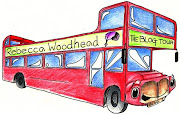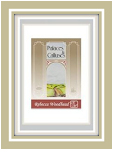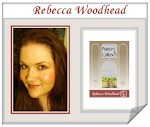Crossing the International Punctuation Line - Could the Wrong Punctuation Put a Full Stop to Your Dreams?
Last week, I entered the introduction of a short story into a writing competition on an American blog (didn't win but got 4 stars/'crawfish'!) I received a mini-crit which was very useful and generally positive but one thing jumped out and slapped me: punctuation.
I made it through a secretarial qualification and BA Hons degree with my current distribution of spaces and marks but I admit that I had a moment of worry. The person who graded my entry is incredibly knowledgeable and a publishing professional. She knows her stuff. Maybe I was wrong. Double spaces after full stops = bad. Double inverted commas around speech = good.
A Tale of Two Tales
I picked up the book I'm currently reading - Hotel on the Corner of Bitter and Sweet sent to me from America - and gasped. It was tricky to make out the spacing after the stops but the speech marks were twin lines. I grabbed the book I read previously - an English book. The spaces after the full stops were clearly double and the marks around speech were loners.
'Aha!' I thought (or should that be "aha"?) 'It's a cultural thing.' A bit of research online confirmed my suspicions. To add further to the international flavour/flavor of this post, the single space after a full stop, now preferred by some in America, is apparently called 'French Spacing.' Double spacing after a full stop is actually called 'English Spacing' or, confusingly, 'American Typewriter Spacing.'
There are even separate British and American rules on where to put punctuation around speech marks. I find this even more confusing and seem to jump between American and English on a regular basis. I am not using a passport to do this teleportation so I may be in breech of any number of laws - linguistic and geographical.
Do you Feel Lucky Punk-tuation?
These rules seem to be in flux and there are exceptions on both sides of the pond. Doubtless, the internet is throwing a spanner in the proverbial grammar factory and it's anyone's guess where the goalposts are - or how they're spaced. I'm all for establishing a new set of transatlantic rules for publication. The question is: are publishers? If the words are good enough, will publishers overlook eccentric spaces or is the tolerance policy zero when the spacing is double?










.jpg)





Another great post Rebecca. Brian was right about your blog being a necessity. I for one enjoy stopping by whenever possible. As for the topic, I have always been confused about what I should or should not be doing with respect to this. Just when I thought I needed two spaces, along came someone to tell me I should be only putting in one. Go figure. Oh, and Brian does have my email address, so feel free to get it from him. You mentioned a need to chat about some writerly stuff.
Well, I think they should be more considerate or may be set one universal rule for it. The confusion might decrease a bit... though I don't know much about these things and before I forget...
CONGRATS...
I feel your pain, Rebecca. Angie called me out on the spacing, too. She suggested using the Find and Replace function to correct the problem.
Surely punctuation is more an art than a science. Harold Pinter tells how when he wrote his play, The Birthday Party, he employed dashes a great deal between phrases. In The Caretaker, he used no dashes, preferring dots. The first ran for a week, the second for a year. His take on this was that maybe dots were more popular than dashes. The fact that they cannot be heard is irrelevant. You can't fool the critics for ever, he concluded, they know their dots from their dashes, even if they can't hear either. Some authors are sparing with punctuation, some pepper their work with it. Commas rather than stops allow the work to flow. Stops do just that. It depends what the work demands, surely.
Interesting Dave. You've taken the discussion into a new dimension - literary v. commercial.
Daft punctuation is part of the fun of being a literary author but they just don't love it in commercial writing.
deleted last post - about interview - in a teeny tiny tantrum as the guy didn't phone this evening. Never mind, he might still phone before the deadline and if he doesn't, I now have a contact at a v nice PR agency and the warm glow of knowing they thought I was a good enough writer to contact for the piece in the first place.
It's kind of like being invited out to a big, posh restaurant by a really hot bloke and being stood up: at least he asked you! :)
You hit a nerve with this one. I was always taught too place double space between stops and recently was told the opposite. I have not tackled punctuation a great deal on the New Author because it seems too me that the rules change. In my opinion, if the punctuation impacts the flow of the story then something is not right.
feels that way to me too Brian. Spot on.
I absolutely HATE HATE HATE the single space after stops (MLA format). I too was raised with double stops and NO serial (Oxford) comma. But I am American, so always double quotations around speech.
I've recently begun to employ the serial comma after reading The Elements of Style.
Ooh! Bit of passion there. Love it! Now I'm off to look up 'Oxford' comma so I can sound knowledgeable because I have no idea what that is :) *blushes*
I need to look up the serial (Oxford) comma, too. When I learned to type (I'm American) in high school in the 1970s, I was taught to use two spaces after a period (full stop to you Brits ;-)), and of course, no question about it ... double inverted commas around quotes is teh American way. Have recently read that it's become the preferred system to use single spacing after the full stop, but this just does not look right to my eye!
I belong to an email discussion group which has a majority of members based in the UK and British Commonwealth, and only a few who are Americans. Many of the members are university graduates, professors, or other highly educated people, and it's instructive to see the differences in spelling and punctuation between the British and American systems.
I know I'm very late in this comment (it was in the archives) but I found it quite interesting!
Welcome to the blog MaryN.
I'm SO glad you posted that as I'd completely forgotten to look up Oxford commas.
It's an interesting topic isn't it? I made it through an A' Level and Degree in English - in England - so I thought I had it all tied up but... no! I think this is probably part of the language that's changing at the moment so I'll watch with interest.
Who has authority over it? I'd like to think the English do by virtue of it being our language initially but it's so widely spoken internationally now it's anyone's guess. Everyone has their own set of rules. I think I'll submit the manuscript with the punctuation that got me through Uni' and hope they won't reject it if these rules no longer apply. I'd be very happy to change punctuation to suit.
The irony is that the double space that's being phased out in America is actually something that originated in the U.S. because of the way your typewriters used to space letters.
It's one of my fave things about the language actually - its amazingly dynamic quality. I love the way it's adapted, added to, altered, absorbed and changed. It keeps it alive. The thing is that whenever you create something non-dynamic - for example a printed edition of something - you've got to come up with a vocab, grammar and punctuation that works for your readership and has sufficient authority to make it through a few editions without looking too odd. That's why I'm a bit obsessed with it at the mo.
Thanks for adding to the discussion. Great to have your take on it :)
Just looked up Oxford commas. Was brought up NEVER to use them although, over the last year or so, I've been using them with a crazy devil-may-care attitude as I think they make things much more clear and I've seen loads of authors using them so I don't see why I shouldn't do the same.
For instance, if you are using semi-colons, a comma before the final 'and' makes things much less confusing.
An American editor should be aware of the grammatical differences between UK and US writing. This is therefore a failure on their part, not yours, and I would worry about an editor not aware of grammatical as well as spelling differences that exist between the UK and USA. Since, copy-editing over here (UK) it is common to respect US grammar when editing a piece by a US/Canadian writer, and I would expect the same courtesy to be extended when the situation is reversed.